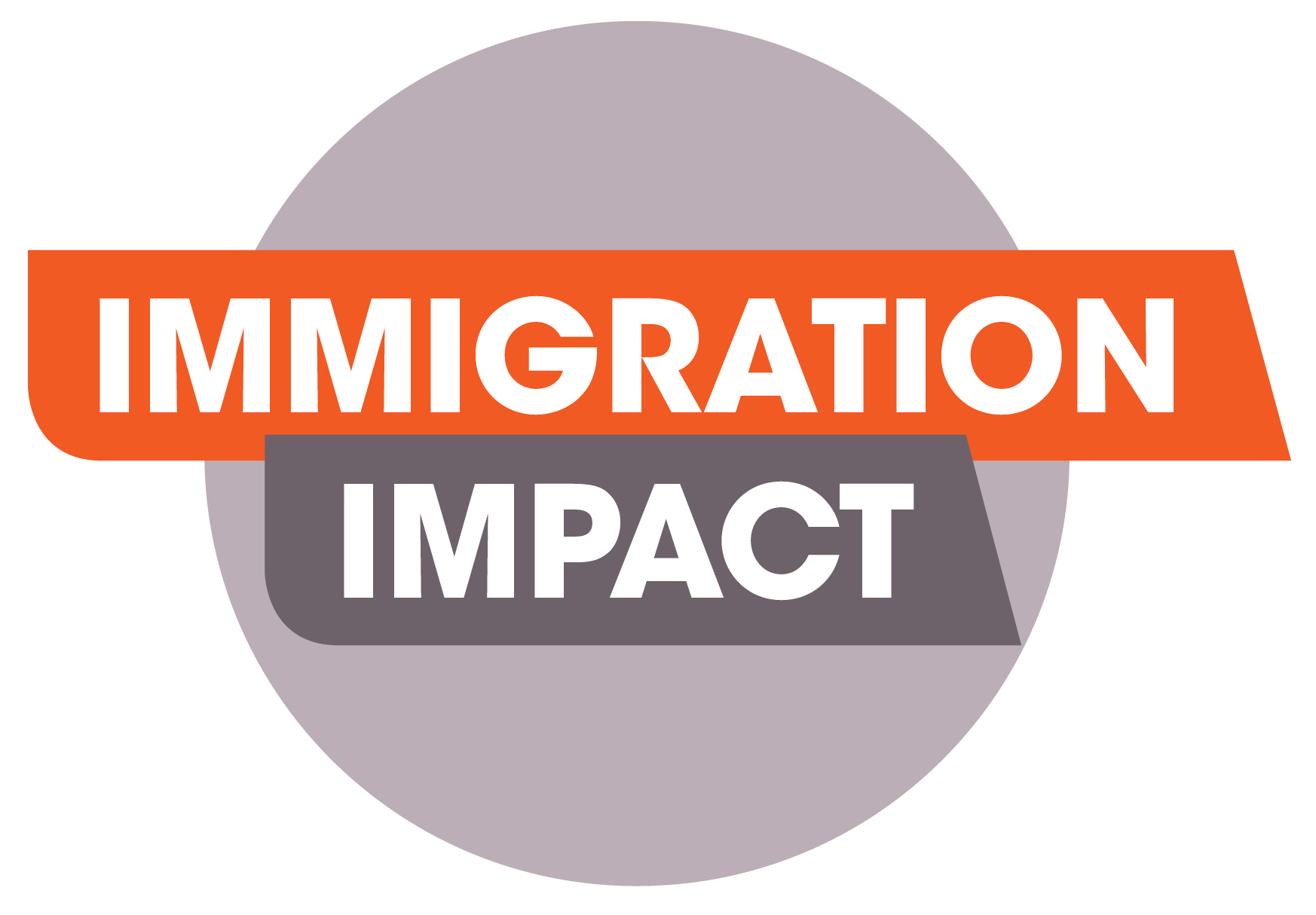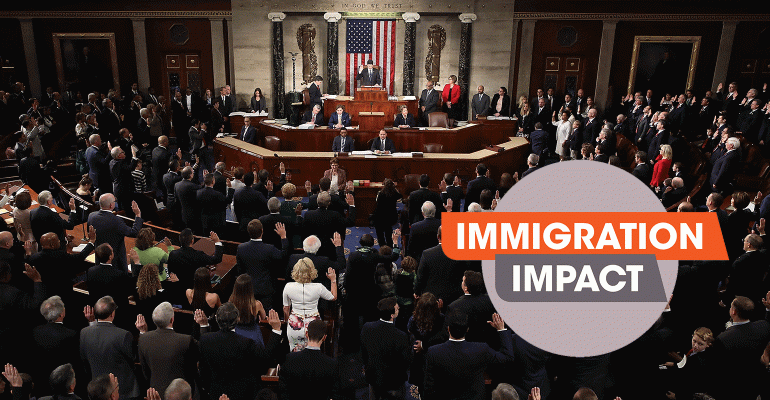 In this ongoing in-depth investigation, NRN looks at how the current political environment could affect immigration and what it means for restaurant operators.
In this ongoing in-depth investigation, NRN looks at how the current political environment could affect immigration and what it means for restaurant operators.
U.S. immigration law is notoriously complex, and its application is growing murkier. To put it simply, individuals who do not legally reside in the U.S. may not be employed in the country.
Of course, we know that this is not the case in practice.
The sheer number of undocumented immigrants who work in U.S. restaurants is so high — 1.1 million people, according to a 2014 Pew Research study — that their presence is ubiquitous. This is despite the fact that restaurant operators are in violation of the law if they employ undocumented workers.
We take a look at eight pieces of legislation, existing and proposed, that cover immigration and the workforce, and how they affect restaurant operators.
 Photo: Spencer Platt/Getty Images
Photo: Spencer Platt/Getty Images1. Immigration and Nationality Act (INA)
What it is: The main body of law that regulates immigration policy was enacted in 1952. The INA is divided into many sections and covers the full breadth of immigration topics. This includes, but is not limited to: immigration quotas, visas, asylum, refugees, documentary requirements, ports of entry and removal.
How it is enforced: The INA is enforced at all levels of government, from the president to the courts and through individual agencies, such as Immigration and Customs Enforcement (ICE). Recent executive orders signed by President Trump signal that his administration will take a tougher stance in enforcing INA laws.
How it affects restaurants: The restaurant industry has a high proportion of workers who are immigrants. INA regulations impact their legal residency status in the U.S. and eligibility to work. Employers may not hire or employ persons who are in the U.S. illegally.
 Photo: mrdoomits/iStock/Thinkstock
Photo: mrdoomits/iStock/Thinkstock2. Employment-based immigration
What it is: Some immigrants may use visas specifically for employment to enter the U.S. These range from “persons of extraordinary ability” (artists, researchers, business people, etc.) to skilled and unskilled workers. As of 2014, “other unskilled labor,” which can include restaurant workers, was capped at 5,000 visas annually. By comparison, 40,000 visas were available annually for skilled workers holding college degrees.
How it is enforced: The U.S. Citizenship and Immigration Services (USCIS) oversees employment-based immigration. Recent reports indicate that H1-B visa applications by skilled workers may now be scrutinized more closely. | How it affects restaurants: Regulations covering unskilled labor apply to the restaurant industry’s workforce.
 Photo: David McNew/Getty Images
Photo: David McNew/Getty Images3. Enforcement
What it is: Ensuring that regulations of the Immigration and Nationality Act are carried out.
How it is enforced: Immigration laws are enforced across the three branches of government. Agencies that deal with immigration laws include the Department of Homeland Security, Immigration and Customs Enforcement, USCIS, Customs and Border Protection, the Department of Labor and the Department of Justice. Examples of enforcement include questioning at ports of entry, the hearing of legal cases and detention.
How it affects restaurants: President Trump has recently called on his administration to take even stricter enforcement measures, such as publicizing crimes allegedly committed by undocumented immigrants and tapping police officers to enforce immigration laws. These measures could impact restaurant workers who are undocumented.
 Photo: John Moore/Getty Images
Photo: John Moore/Getty Images4. Detention
What it is: The holding by a government official of any migrant, including refugees and asylum-seekers, for the purpose of establishing their identity, carrying out an immigration claim, or removing them from the country.
How it is enforced: The agencies responsible for the enforcement of immigration laws, mentioned in No. 3, are also charged with carrying out detentions. Recent Department of Homeland Security documents show that President Trump is encouraging his administration to build new detention facilities.
How it affects restaurants: Immigrant employees of restaurants may face detention if their immigration status changes and they are no longer able to legally reside and work in the U.S.
 Photo: Spencer Platt/Getty Images
Photo: Spencer Platt/Getty Images5. Sanctuary policies, DACA and the DREAM Act
What they are: Laws protecting certain groups of immigrants who may have entered the U.S. illegally. Sanctuary policies intend to limit the ability of law enforcement to arrest undocumented persons, but they do not prohibit arrest. DACA, or Deferred Action for Childhood Arrivals, allows some undocumented immigrants brought to the U.S. as children to defer deportation. The DREAM Act creates a pathway for young, undocumented immigrants to obtain permanent residency.
How they are enforced: Enforcement for each law varies. Despite Trump’s hard line on immigration during his presidential campaign, a recent expansion of immigration enforcement will not affect so-called “dreamers.”
How they affect restaurants: Immigrant employees of restaurants, particularly younger workers, may be affected by this legislation. Individuals covered by the DREAM Act will not be impacted by recent changes. However, Trump has indicated that he does not support sanctuary policies.
 Photo: John Moore/Getty Images
Photo: John Moore/Getty Images6. Executive order on secure borders
What it is: In late January, President Trump signed an executive order that intends to heighten border security by constructing a wall along the U.S.-Mexico border, hastening deportations and creating partnerships between federal agents and local law enforcement.
How it is enforced: While construction of a border wall has not yet begun, and while partnerships between local and federal entities is not yet official, news of deportations has escalated.
How it affects restaurants: It’s not yet clear how a border wall will impact current immigration trends. But restaurant workers who are undocumented may face a greater chance of deportation.
 Photo: Mark Runnacles/Getty Images
Photo: Mark Runnacles/Getty Images7. Executive order on foreign terrorist entry
What it is: President Trump signed an executive order in March that revised an earlier executive order from January that barred visa- and green-card-holders from seven Muslim-majority countries: Iran, Iraq, Syria, Libya, Somalia, Sudan and Yemen. The updated executive order removes Iraq from that list, but still requires “additional scrutiny” for nationals of the remaining countries who wish to enter the United States. The stated purpose of the executive order is to protect the U.S. from foreign terrorists.
How it is enforced: The first iteration of the executive order saw enforcement at border crossings by ICE agents. Some individuals were detained and eventually deported, but some eventually gained entry into the U.S. The order was also enforced at the judicial level after several lawsuits were filed on behalf of detained persons. The lawsuits resulted in the reversal of the original version of the executive order.
How it affects restaurants: Restaurant workers may have ties to the six countries included in the latest version of the executive order. For those in the U.S., it could prevent them from leaving the country. Those outside the U.S. could be prevented from re-entering the country.
 Photo: Justin Sullivan/Getty Images
Photo: Justin Sullivan/Getty Images8. Tariffs on food
What it is: President Trump has proposed a tariff on all imports, across the board. Some reports estimate the tariff at 10 percent for all goods, but others report a 20-percent tariff on goods imported from Mexico.
How it is enforced: This proposal has not yet been enacted.
How it affects restaurants: Countless restaurants in the U.S. rely on imported food and beverage items. For instance, in 2015, the U.S. imported $4.8 billion of fresh vegetables from Mexico, the office of the Trade Representative says. Wine and beer account for $2.7 billion of imports.






